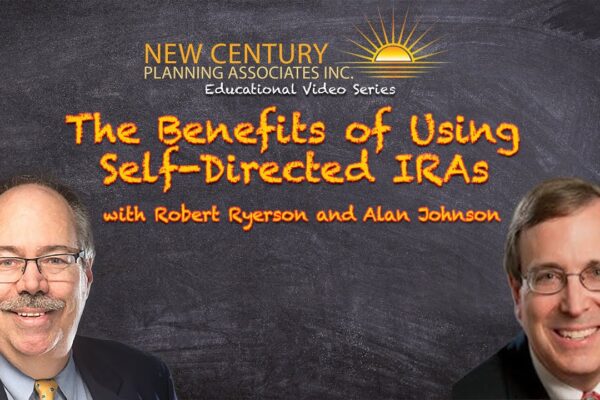Important Aspects of Retirement Planning You Need to Know
As the average life expectancy in the United States grows, retirement planning should change along with it. For most people, retirement will last for several decades beyond what used to be common. With that increased life expectancy comes increased costs, particularly as people approach the end of their lives. There are a number of expenses that retirees need to ensure that they have worked into their retirement savings plans. Otherwise, they may find that what they have saved is not sufficient. Here are a few of the more important aspects of retirement planning that you should consider now before you reach retirement and how to calculate the amount you may need.
Consider Downsizing to a Smaller Home
Once you retire, you might discover that your home is too large for your changing needs. Due to the high cost of owning a larger home, it might be in your best interest to sell your home and downsize to a smaller one in order to save on day-to-day expenses. Selling a home, especially one that you have lived in for a long time and may have even raised your children in can be an emotional undertaking, causing many retirees to think twice. But that larger home can end up presenting many challenges as you continue to age.
 You might find that as you grow older, stairs become more difficult for you to manage, which could be a problem if you live in a multi-story residence. Additionally, unless you can afford to hire a maid, cleaning a very large home might be too difficult for you, especially if you have any health concerns. Then, of course, there are the financial costs of a larger home. Insurance, maintenance and upkeep, and property taxes can all put a significant strain on your fixed retirement income.
You might find that as you grow older, stairs become more difficult for you to manage, which could be a problem if you live in a multi-story residence. Additionally, unless you can afford to hire a maid, cleaning a very large home might be too difficult for you, especially if you have any health concerns. Then, of course, there are the financial costs of a larger home. Insurance, maintenance and upkeep, and property taxes can all put a significant strain on your fixed retirement income.
The Rising Cost of Health Care
One important aspect of retirement that you may not currently be considering is the rising cost of maintaining your health and caring for yourself or your spouse when health issues become a bigger problem. Many people are not aware of the limitations of Medicare plans, which can lead to some surprise expenses down the road. Without enough money set aside to take care of unexpected medical costs, you might find that your retirement savings aren’t going as far as you initially thought they would. This is another area where extended life expectancy comes into play. The longer you live, the more struggles you are likely to have with your health, and that will result in increased medical expenses. You may also want to work in the cost of end-of-life care into your retirement plan.
 Although it is not a pleasant thing for most people to think about, the truth is that end-of-life care may become a reality for nearly 70% of adults turning 65, at least according to LongTermCare.gov. The same site estimates that the average cost of a private room in a nursing home nationwide is around $7,698 per month, a cost that can be lower or higher depending on where you live. For example, in large metropolitan areas, that cost might be much higher, as much as $13,000 a month. If a chronic illness or long-term care event does, unfortunately, enter the picture at some point, where would that “extra” $80-120,000/year come from?! If there is not a plan in place, it is quite possible to accidentally impoverish a healthier spouse, or to tun out of money, or to burden loved ones to a very significant degree. In fact, often a family member interrupts their career or life in order to help out in a chronic illness situation, and the non-financial consequences associated with that can be painful as well. Having a plan that creates a large new income stream in the event of a long term care event would allow family members to hire and manage the care, rather than providing it themselves.
Although it is not a pleasant thing for most people to think about, the truth is that end-of-life care may become a reality for nearly 70% of adults turning 65, at least according to LongTermCare.gov. The same site estimates that the average cost of a private room in a nursing home nationwide is around $7,698 per month, a cost that can be lower or higher depending on where you live. For example, in large metropolitan areas, that cost might be much higher, as much as $13,000 a month. If a chronic illness or long-term care event does, unfortunately, enter the picture at some point, where would that “extra” $80-120,000/year come from?! If there is not a plan in place, it is quite possible to accidentally impoverish a healthier spouse, or to tun out of money, or to burden loved ones to a very significant degree. In fact, often a family member interrupts their career or life in order to help out in a chronic illness situation, and the non-financial consequences associated with that can be painful as well. Having a plan that creates a large new income stream in the event of a long term care event would allow family members to hire and manage the care, rather than providing it themselves.
Stretch Your Savings And Consider Your Lifestyle
 An important aspect of planning for your retirement involves thinking about the type of lifestyle you want in your golden years. Will you be spending most of your time at home and with your family? Or do you plan on traveling around the world? These are important considerations when you decide where you want to spend your retirement money. Some retirees choose to continue working at a part-time position during retirement in order to help stretch their retirement funds even further. Consider what your monthly expenses will be, including the cost of food, utilities, rent or mortgage payments, health care expenses, and any other costs. Be sure you are setting aside enough money to cover travel if that’s something you plan on doing and ensure that you have other funds available for emergencies or other unexpected costs.
An important aspect of planning for your retirement involves thinking about the type of lifestyle you want in your golden years. Will you be spending most of your time at home and with your family? Or do you plan on traveling around the world? These are important considerations when you decide where you want to spend your retirement money. Some retirees choose to continue working at a part-time position during retirement in order to help stretch their retirement funds even further. Consider what your monthly expenses will be, including the cost of food, utilities, rent or mortgage payments, health care expenses, and any other costs. Be sure you are setting aside enough money to cover travel if that’s something you plan on doing and ensure that you have other funds available for emergencies or other unexpected costs.
Once you have those monthly costs calculated, you can work backward and determine what amount you need to have in your retirement account. That may change as you get closer to retirement, so it is extremely important that you reassess your retirement savings every few years. You do not want to deplete your retirement savings too early, because after those investments run dry, you must rely on Social Security. Unfortunately, Social Security benefits don’t generally provide enough income to cover basic living expenses.
 Consult A Professional
Consult A Professional
These are just a few of the aspects that you will want to consider when planning for your retirement. Consider consulting with a financial planner when reassessing your investments. They can help you to manage your investments and examine whether your retirement savings accounts are sufficient and can last you through what could turn out to be quite a lengthy retirement.
Author






